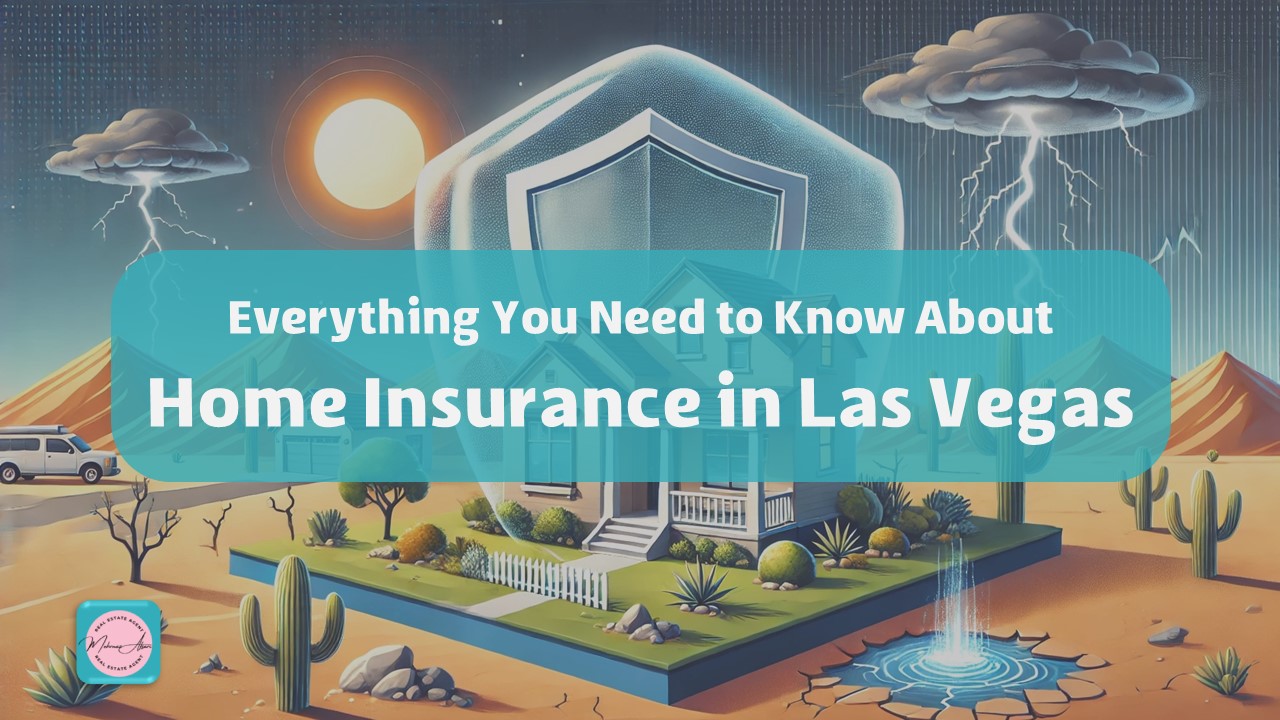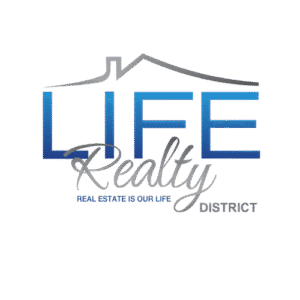When it comes to protecting your biggest investment, understanding home insurance in Las Vegas isn’t just a smart move—it’s essential. From desert storms to rising property values, the risks and realities of owning a home in Sin City are unique. This guide of agent mehrnaz afsari real estate agent at las vegas blogs, breaks down everything you need to know to choose the right policy, avoid costly mistakes, and feel confident about your coverage.
Why Home Insurance Is Essential in Las Vegas
Las Vegas may be known for its dazzling lights and desert charm, but living here isn’t all glitter and glam. Behind the scenes, homeowners face very real risks that make home insurance in Las Vegas more than just a box to check—it’s a crucial safety net.
Common Risks Faced by Homeowners in Las Vegas
Living in a desert city like Las Vegas means dealing with harsh conditions that can take a toll on your property. Flash floods, despite the dry climate, are surprisingly common and can cause severe damage to foundations and interiors. Summer brings extreme heat, which strains roofing materials and air conditioning units. Not to mention, occasional windstorms can rip through neighborhoods, damaging fences, shingles, and outdoor structures.
Beyond natural hazards, there’s also the increasing threat of property crime in certain areas. Vandalism or theft may not happen often, but when it does, it can be expensive—and emotionally draining—to recover.
Financial Protection & Peace of Mind
Home insurance acts as a financial shield. Whether it’s repairing flood damage, replacing a stolen appliance, or covering temporary housing after a disaster, a solid policy can save you from thousands in unexpected costs. But it’s not just about money—it’s about peace of mind. Knowing that your home, possessions, and even liability claims are covered helps you sleep better at night, especially when the Vegas weather decides to throw a curveball.
What Does Home Insurance Typically Cover?
A good home insurance policy isn’t just about checking a box—it’s a tailored package that protects the spaces you live in, the things you love, and the unexpected moments that could turn life upside down. In Las Vegas, where the climate and housing market each come with their own quirks, knowing what your policy covers is vital.
Structure & Dwelling Protection
At the heart of every home insurance policy is protection for the physical structure itself. This includes your house’s walls, roof, floors, and even built-in systems like plumbing and electrical. If a fire damages your kitchen, or a sudden storm rips off part of your roof, dwelling coverage helps pay for repairs or rebuilding.
In Las Vegas, where intense sun and surprise storms can wreak havoc on rooftops and stucco, having this kind of protection isn’t optional—it’s a must. Some policies may also cover detached structures like garages or sheds, but always double-check the fine print.
Personal Belongings & Liability Coverage
Home insurance also extends beyond bricks and mortar. It covers your stuff—furniture, electronics, clothes, appliances—if they’re stolen, vandalized, or damaged by a covered event. Whether it’s a break-in or water damage from a busted pipe, your policy helps you replace what’s lost.
Then there’s personal liability coverage. This part kicks in if someone is injured on your property and you’re found legally responsible. Say a guest trips on your porch steps and breaks an ankle—your insurance can help cover their medical bills and legal fees. It’s one of those protections you hope to never need but will be deeply grateful for if you do.
READ MORE: Summerlin vs Henderson
Factors That Affect Home Insurance Rates in Las Vegas
While two homeowners in Las Vegas might live just a few miles apart, their home insurance premiums could look very different. That’s because insurers don’t use a one-size-fits-all approach. Rates are calculated based on a variety of factors that reflect how risky—or secure—your specific situation appears. Let’s break down the most important ones.
Geographic Location & Zip Code
In a sprawling city like Las Vegas, your zip code tells insurers a lot. Some areas are more prone to flash flooding, while others may have higher crime rates or be closer to fire-prone desert brush. For example, a home in Summerlin might have different risk metrics compared to one near downtown or North Las Vegas.
Insurance companies look at past claims in your area, local weather patterns, and even proximity to the nearest fire station or hydrant. All of this impacts how likely it is that you’ll need to file a claim—and how much they’ll charge you just in case.
Condition & Age of the Property
The older your home, the more likely it is to have outdated wiring, plumbing, or roofing—all things that can raise red flags for insurance companies. A well-maintained house with recent upgrades may earn you a lower rate, while older homes without renovations might cost you more to insure.
Insurers may also send inspectors to assess your home’s current condition. Cracked foundations, damaged siding, or a sagging roof can lead to surcharges—or even policy denial. On the flip side, investing in regular maintenance pays off by keeping your home insurable and affordable.
Credit Score & Claim History
Yes, your credit matters—even for insurance. A higher credit score often signals to insurers that you’re financially responsible and less likely to file frequent or frivolous claims. That can work in your favor when it comes to setting your rate.
Your personal claim history also plays a big role. If you’ve filed multiple home insurance claims in the past few years, insurers may label you high-risk, even if those claims weren’t your fault. On the other hand, a clean claims record can help you qualify for better rates and loyalty discounts.
How Much Does Home Insurance Cost in Las Vegas?
The cost of home insurance in Las Vegas can vary wildly depending on where you live, what kind of home you own, and how much coverage you need. But to give you a ballpark: most homeowners in the Las Vegas area pay somewhere between $750 to $1,200 per year for a standard policy.
Average Annual Premiums
According to recent data, the average annual premium for a home in Las Vegas hovers around $950. However, a newer home in a low-risk area with basic coverage might only cost $700–$800. In contrast, an older home in a flood-prone neighborhood could easily push your rate past $1,200.
For example, a 2,000-square-foot home in Summerlin built in 2015 might cost about $850/year to insure with a $1,000 deductible and $300,000 in dwelling coverage. Meanwhile, a similar house built in 1980 in East Vegas may be quoted closer to $1,100, especially if the roof hasn’t been updated.
Tips to Reduce Your Insurance Costs
Want to lower your premiums? Start with safety upgrades. Installing a monitored security system or even deadbolt locks can lead to discounts. Bundling your home insurance with auto or umbrella policies from the same provider can also save you up to 20%.
Other tips: raise your deductible if you can afford it, avoid filing small claims, and improve your credit score. Also, shop around every couple of years—many insurers offer special rates for new customers that long-time clients don’t always get.
Best Home Insurance Providers in Las Vegas
With dozens of options out there, finding the right insurer in Las Vegas can feel overwhelming. To help narrow things down, here are some of the top-rated local and national providers offering solid coverage, competitive rates, and great service.
Top-Rated Local and National Insurers in las vegas
State Farm – A consistent favorite among Vegas homeowners, State Farm offers a wide range of customizable policies, reliable customer service, and strong financial backing. Great for people who like dealing with local agents.
Allstate – Known for generous discounts and digital tools, Allstate is ideal for tech-savvy homeowners. Their Claim RateGuard is a bonus for people worried about rising premiums after a claim.
American Family Insurance – Offers affordable rates for newer homes, with great bundling options and useful add-ons like identity theft protection.
Farmers Insurance – Popular among Las Vegas residents for their flexible coverage levels and risk-specific endorsements, especially for homes in higher-risk zones.
AAA Nevada – If you’re already a AAA member, bundling with their homeowners insurance can unlock steep discounts, plus the added convenience of 24/7 roadside and claims assistance.
What to Look for When Comparing Insurance Providers
Don’t just chase the cheapest quote. Look at customer service ratings, the ease of filing a claim, available discounts, and the insurer’s financial strength. Some companies may offer lower premiums upfront but hit you with slow claims processing or surprise exclusions later.
Also, ask about local adjusters—companies with reps based in Las Vegas may better understand regional risks like monsoon flooding or stucco damage from extreme heat. Finally, check how customizable their policies are. The more flexibility, the more control you have over costs and coverage.
Additional Coverage Options to Consider
Basic home insurance is a great start, but depending on your home’s location, age, or features, you might need more than the standard package. Optional add-ons—also called endorsements—can fill in the gaps.
You might consider flood insurance, especially if your property sits in or near a FEMA flood zone. Standard policies don’t cover flood damage, and with sudden desert rains, the risk is real.
Earthquake coverage is another option. Nevada sits in a seismically active zone, and while large quakes are rare, they’re not impossible. If your home is older or on a slab foundation, this might be worth adding.
Other popular endorsements include equipment breakdown coverage for appliances and HVAC systems, scheduled personal property coverage for high-value items like jewelry, and water backup coverage in case a sump pump or drain fails.
Flood Insurance
Many homeowners in Las Vegas are surprised to learn that flood damage is not covered by standard home insurance policies. Despite the city’s arid reputation, flash floods caused by intense desert rainstorms are a real—and growing—threat, especially in older neighborhoods or areas with poor drainage.
Flood insurance is typically offered through the National Flood Insurance Program (NFIP) or private insurers and can cover both your home’s structure and contents. Even if your home isn’t in a high-risk flood zone, it might still be wise to consider this add-on. After all, when water starts pouring in, it doesn’t check your ZIP code.
Earthquake Insurance
Nevada ranks third in the nation for seismic activity, right after California and Alaska. Yet most standard policies exclude earthquakes entirely. That means if a tremor damages your foundation, walls, or belongings, you’ll be footing the bill—unless you have earthquake insurance.
This type of coverage typically comes with a high deductible but can be a financial lifesaver if a significant quake hits. In Las Vegas, where new construction often doesn’t account for serious seismic resistance, this add-on is especially worth considering for older homes or those on slab foundations.
High-Value Items Coverage
Think your standard policy fully covers that diamond ring or collector’s watch? Think again. Most home insurance plans place limits on certain high-value personal items—often capping jewelry or electronics coverage at $1,000–$2,500 per item.
If you own valuables that exceed those limits, ask your provider about scheduled personal property coverage. This lets you itemize and insure specific belongings—like fine art, heirloom furniture, or luxury electronics—at their full appraised value. It’s peace of mind for the stuff you love most.
How to Choose the Right Home Insurance Policy
Not all homes—or homeowners—are created equal, and your insurance should reflect that. Picking the right home insurance policy in Las Vegas isn’t about choosing the cheapest option; it’s about finding the right balance between coverage, cost, and peace of mind. Here’s how to do it, step by step.
Assessing Your Needs
Start with a realistic evaluation of your home and lifestyle. How much would it cost to rebuild your house from the ground up? Do you own expensive electronics, jewelry, or artwork? What risks are more likely in your area—flood, theft, fire?
If you rent out part of your property, or have a home-based business, you may need additional protection. Tailoring your policy begins with understanding what’s truly at stake.
Comparing Quotes Effectively
Once you know what you need, don’t settle for the first quote. Get estimates from at least three reputable insurers, making sure they reflect similar coverage levels and deductibles. It’s not just about the bottom line—look into customer service reviews, claim turnaround times, and the insurer’s financial strength. Many Las Vegas residents save by bundling home and auto insurance, or taking advantage of security-system discounts. Ask about every discount you’re eligible for—insurers won’t always volunteer the info.
Reading the Fine Print
This is where many homeowners trip up. Read your policy documents carefully before signing. Know what’s covered, what’s excluded, and how claims are handled. Pay close attention to deductibles, sub-limits on valuables, and special endorsements you might need (like flood or earthquake coverage). And remember: insurance isn’t static. Revisit your policy yearly to update coverage as your home—and life—evolve.
Conclusion
Your home is more than just four walls—it’s your refuge, your biggest asset, and where life happens. Choosing the right home insurance policy in Las Vegas helps you protect it against the city’s unpredictable risks, from flash floods to property crime.
Take the time to understand your needs, compare your options, and don’t be afraid to ask questions. Whether you’re a new homeowner or just reviewing your current coverage, now’s the perfect time to get expert advice or request a free quote. A smarter choice today could save you thousands tomorrow.
READE MORE: Moving to Nevada
Frequently Asked Questions
Is home insurance mandatory in Las Vegas?
home insurance isn’t legally required in Las Vegas or anywhere in Nevada. However, if you have a mortgage, your lender will almost certainly require it to protect their investment in your home.
What’s the average cost of home insurance in Nevada?
The state average is around $900–$1,000 per year, but rates in Las Vegas specifically can range from $750 to $1,200+ depending on factors like location, home age, and coverage type.
Does home insurance cover damage from heat or wildfires?
Standard home insurance generally covers fire damage, including from wildfires. However, damage from heat alone—like sun-warped siding or cracked stucco—may not be covered unless it results from a covered peril. Always review your policy details.
Can I bundle my home and auto insurance for discounts?
Most major insurers offer bundling discounts, often between 10% to 25%. It’s one of the easiest ways to save on both policies while simplifying billing and account management.
How do I file a home insurance claim in Las Vegas?
Start by documenting the damage with photos or video. Contact your insurer as soon as possible—most have 24/7 claim lines or mobile apps. A claims adjuster will usually inspect the damage and guide you through next steps. Keep receipts for repairs or temporary lodging if applicable.





